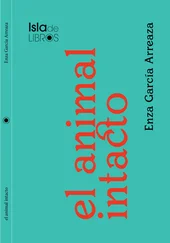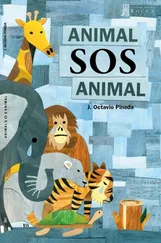“Who is Ma Franci?”
“She’s a nun, came from France more than forty years ago to spread the word about Isa miyañ and do good works.”
“And français?”
“The language of France, it’s all she knows.”
“After forty years here she can’t speak Hindi?”
So then I get to telling Nisha about Ma Franci. It’s a sad sort of story, Ma’s, though in another way funny.
On that night all sorts of people lost all kinds of things, lives for sure, families, friends, health, jobs, in some cases their wits. This poor woman, Ma Franci, lost all knowledge of Hindi. She’d gone to sleep knowing it as well as any Khaufpuri, but was woken in the middle of the night by a wind full of poison and prophesying angels. In that great mela of death, those rowdy, unforgettable festivities, her mind was wiped clean of Hindi, and of Inglis too, which she had also been able to speak à sa manière, she forgot all languages except her childhood speech of France. Well, this by itself was no problem, so many foreigners come to Khaufpur, how many can speak Hindi? But there was a further twist to Ma Franci’s madness, when she heard people talking in Hindi or Inglis, or come to that in Urdu, Tamil, Oriya, or any other tongue used in Khaufpur, she could no longer recognise that what they were speaking was a language, she thought they were just making stupid grunts and sounds.
The orphanage was run by les réligieuses françaises, it was in Jyotinagar near the factory and on that night it was badly hit. Many of the children died, nuns too. Those who survived were sick. Afterwards Indian nuns came and the French nuns one by one were taken back home. Ma refused to leave. She said Khaufpur had felt the fist of god, the Apokalis had begun, her place was with its suffering people. So she stayed and in a loud voice prayed day and night.
None of the remaining sisters spoke français, there was no one left whose speech Ma Franci could understand, or who had any idea what she was saying. The Indian sisters did take the trouble to learn a few things such as o, water, dézhoné , meal, and twalet , toilet, komoñ sava , how’s it going, etc., but this only made the old woman crazier. If they knew what proper language was, why did they keep on with their beastly gibbering?
This all was still going on when I was very small. By the time I was old enough to know who she was, my own troubles had begun and Ma Franci had already spent years with a head full of angels and a tongue sourer than a lick of tamarind.
When I’ve finished Ma’s story Nisha asks with wet eyes, “That poor woman, is she still here in Khaufpur?”
“She is. She lives in the convent.”
“You’ll have to go back.”
“Back where?”
“Convent,” says she, snivelling into a handkerchief. “Like you say, you will learn français no problem, you can look after that poor old lady.”
“No!”
“No? You ungrateful little wretch, what is this no?”
“It’s my no, the meaning of which is no.”
“Change it to a yes.”
Eyes, I don’t know how many times I told Nisha I would not go back. Ma was old. Very old. Eighty years, maybe. Perhaps a hundred. I liked her but she’d need a lot of care, plus I liked the freedom of my life, roaming with Jara, and the mind games with public and police. I was just turned seventeen, I’d been on the streets for years and was as hard-hearted a little cunt as you’ll find anywhere.
“No means no.”
But Nisha too could be stubborn. She said I must learn responsibility.
“What? I’m a four-foot animal.”
“You’re spoilt. It’s time to grow up.” She turned her back on me. “From now on looking after Ma Franci is part of your job, Zafar will confirm it.”
Couple of days later I arrive for work, Zafar presses a fat packet into my hand, tells me to deliver it to a family in Blue Moon Colony.
“Careful with this, it’s for a family who need a new roof on their place.”
Never had I seen so much money.
“How much is here?”
“It’s eleven and a half thousand rupees.”
I was amazed that Zafar, knowing I’d been a scam artist, would put so much money in my hand.
“You trust me? I could run away.”
“It’s you who must learn to trust,” said he.
I replied nothing, just took the money and gave it. I despised Zafar for trusting me, and all the more because Nisha worshipped him, who was twice her age. Okay, that was none of my business but it irritated me. I denied to myself that I was beginning to have feelings for Nisha. How stupid would that be? Eyes, imagine, if a person has a rival in love, he will want that rival to be an ugly, bow-legged coward with hairs gushing from ears and nostrils, a mouth that smells like drains and skin rising up in rebellion against itself. Believe me, he will not want Zafar, who is tall, handsome, whose beard curls like a raja’s and who’s robed in the sweet odour of sainthood.
Not easy it’s learning a language when the person who is supposed to be teaching you can’t understand a dumb fucking thing you say. “Animal, why do they make these noises?” Ma Franci would ask in her singsong voice. She asked in français, but somehow the meaning leaked into my brain.
When Ma shouted, sallo purqwatu na parlpa lalang yumain? I had no idea what the sounds meant, but I knew what she meant. It took a while, maybe two to three weeks, to get the hang of français, it helped that although Ma didn’t realise it there’s still quite a bit of Hindi in what she said.
“Ça va, Ma?”
“Achchha Jaanvar. Et toi?”
“Sirez quelq’chose?”
“Animal, if you can learn to speak properly, why do these fools talk rubbish all the time?”
“It is not rubbish Ma Franci, it is another language.”
“Go on with you,” she says. “I know many languages. These people are just drivelling. Why do they do it? Why won’t they treat me like a human being?”
Je ne sais pas, Ma, je suis un animal.
Ma was very old and more crotchety than ever. When I had mastered français, the other nuns learned for the first time that Ma thought they were gibbering nonsense. It went down badly. Gone in the head, they said, she’ll be better off in France, in a house for old nuns where everyone speaks français.
Stupidly, I told Ma about this idea of her going back to France. She grew upset. “Non, Animal, mon travail c’est dans le royaume des pauvres.” My work’s in the kingdom of the poor, it’s what she called the slums of Khaufpur.
Next morning, Ma goes off to her work, which is moving from house to house attending to small sicknesses and injuries. How she manages without language no one knows except me who shares that gift, there’s more said in a smile. By evening when I show up at the convent, Ma has not returned. This is unusual and the nuns are worried so I’ve gone out searching. Many bidonvilles has Khaufpur, where to begin? In Qazi Camp Ma had much work, but no one there has seen her. I spend an hour in this one place.
Next I’ve headed to Phuta Maqbara. Behind the ruined tomb that stands among the shacks of the poor, the moon’s rising, and with it rises my fear. Fear plus guilt, it’s me who’s stirred up this trouble. In the disquiet moonlight I search alley after alley, find only shadows. It’s seriously late. A loony old nun out alone, who might she meet? Where might she have fallen?
I go back to the convent, hoping she might have returned. All the lights are on, they’re saying prayers for her safety. I go out again right away. Towards midnight I come to the Nutcracker. Of all Khaufpur’s slums this is the biggest and most desperate, but for that reason also the most interesting, I could spend all day there flying kites of gossip. Now I’m asking everyone I meet if they have seen Ma. No one has. Right in the heart of the Nutcracker, at the crossing of Paradise Alley and Seven Tailors’ Gulli is Chunaram’s chai shop, where it’s my habit to drop in each afternoon to taunt its owner and blag cups of tea. When I reach it the place is shutting down for the night, one kerosene lamp there’s with the wick turned down, couple of guys playing cards in the gloom, but here finally I get word. Someone had seen an old woman of Ma’s description leaving the house of Huriya Bi. Eyes, do you remember that I mentioned hearing Aliya’s voice calling me to play? Her granny said I behaved like a kid? Well, Aliya’s granny is Huriya Bi. The moon’s lost behind clouds, in full darkness I’ve groped my way up Seven Tailors’ towards the northern edge of the Nutcracker. By now most people are sleeping, here and there are a few flickering lights behind the sack doors of the houses and from within, soft voices and coughing. No light there’s in the tiny house of Huriya Bi, it’s a shack with no door just a black opening. I’ve gone in and shaken the sleeping forms. Huriya waking with a start, says “Goodness, is it Friday?”
Читать дальше












